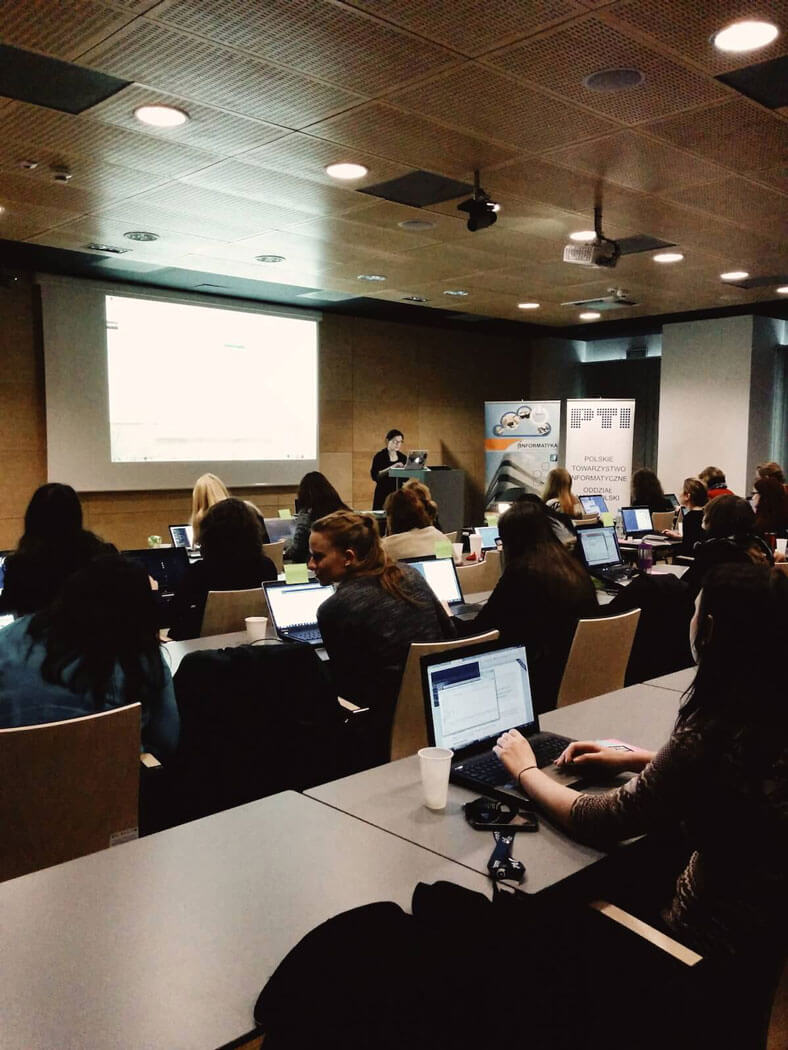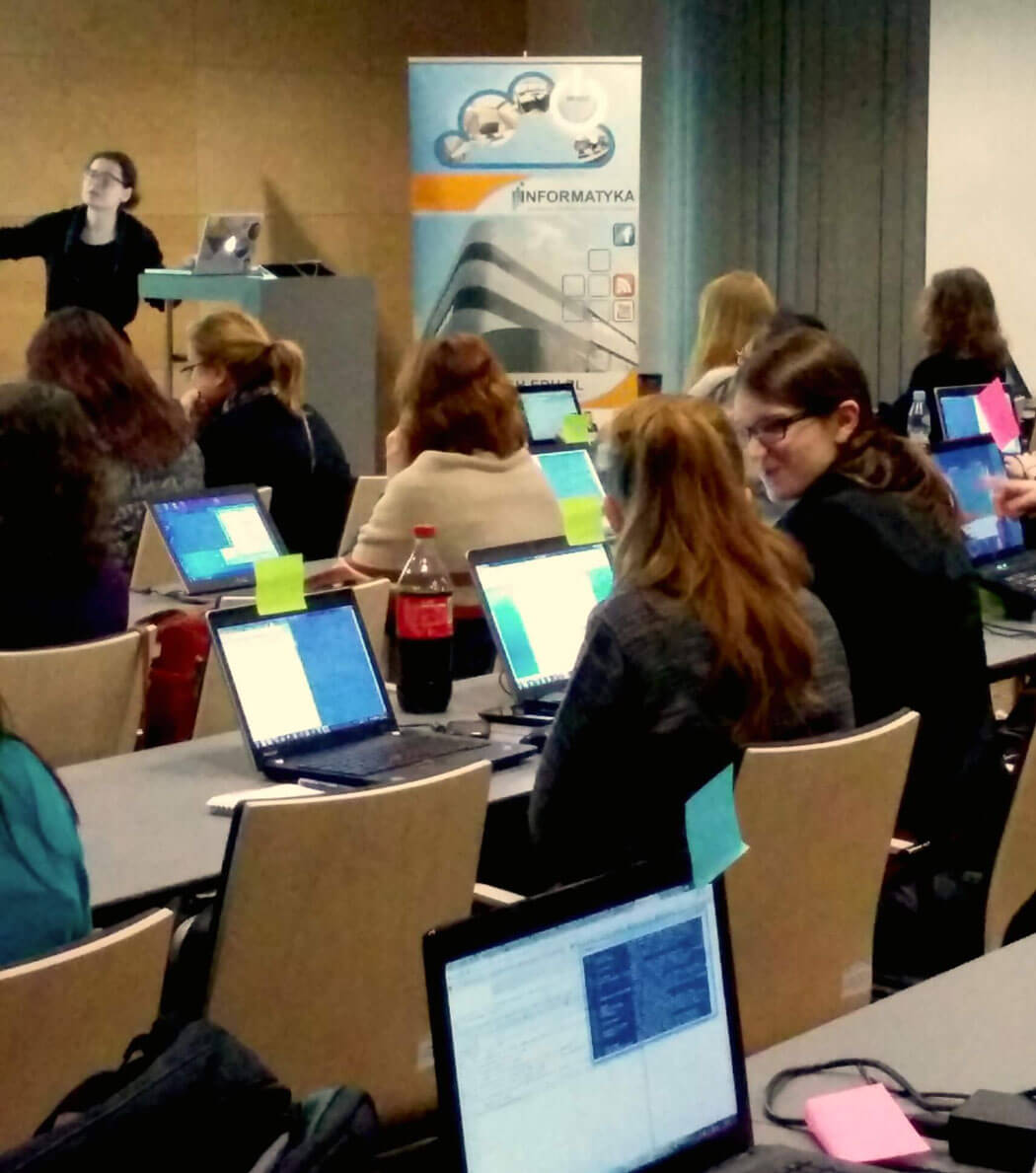Software Carpentry in Krakow!
 Software Carpentry is a non-profit organisation which runs workshops all over the world, provides open access teaching materials, and runs an instructor training program.
Software Carpentry is a non-profit organisation which runs workshops all over the world, provides open access teaching materials, and runs an instructor training program.
The main idea for these events is to help scientists to develop their programming skills so they can use them on a daily basis to automate their work.
The workshop program is usually fixed to the following areas:
- the Unix shell (and how to automate repetitive tasks)
- Python or R (and how to grow a program in a modular, testable way)
- Git and GitHub (and how to track and share work efficiently)
- SQL (and the difference between structured and unstructured data)
Attendees work on their own laptops so they have everything installed so as to be able to work on their own later on.
This weekend, thanks to Aleksandra Pawlik, we had the first such workshop in Cracow – Women in Science and Engineering. This particular event was targeted towards women who work as scientists and who could use programming skills to be more productive at their work. There are lots of events targeted only for women lately as they tend to be too shy to go for the usual events, so there is a strong community that tries to convince them that they can do anything they want.
I had a pleasure to help during the event – while Aleksandra and Paulina Lach were running the workshop – I along with Barbara Szczygieł, Iwona Grelowska and Patrycja Radaczyńska were ready to solve issues and answer any question from attendees. And one of my Lunar Logic collegues – Basia Madej – helped with organization.
 The event was, as usual, two days long.
The event was, as usual, two days long.
On the first day Aleksandra ran a workshop on bash and version control.
It was very important to participants as they sometimes are required to login to some server without a graphical interface so they need to know how to use command line.
Also version control can be really useful, eg. while working with a colleague on a publication.
On the second day Paulina Lach was teaching Python. Attendees could learn how to replace their usual Excel documents with more efficient Python scripts, how to plot things, how to use numpy library to compute operations on matrixes and so on.
Last, but not least, participants learnt about the power of the databases and how they can use them in their work.
We agreed on a very smart system of red (or pink ;)) and green stickies – when an attendee finished a task without problems, she put a green sticky and any time she had an issue – she used a red sticky so people could react immediately to help.
It was really great to see all these women fascinated with the topics and willing to continue learning programming, feeling that it can be really useful for them.
There were lot’s of people interested in taking part, unfortunately they ended up on the waiting list, but I believe there will be more such events in the future.
I really like that the community is growing here!

